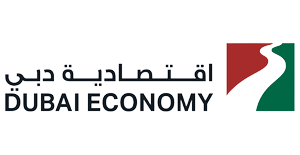Establishing a site in the UAE is a strategic business decision. The prices are different in accordance with design, functionality, and objectives. Understanding expenses helps businesses budget effectively. Some websites need simple pages, while others require advanced features. Pricing also depends on expertise and developer skills. Many businesses compare costs before choosing a provider. This article explains factors that impact website expenses in the UAE. You will learn about design, hosting, security, and ongoing costs. Each section will break down essential details. Clear insights will guide you in making better decisions. We also explore the role of professional expertise. Businesses need transparent details before committing to a budget. A strong online presence brings credibility and growth. Knowing costs in advance prevents financial surprises. This blog explains everything you need to know about website pricing.
Website development basics in the UAE
Every website project starts with planning. The initial stage defines purpose and goals. Companies must choose between simple and complex structures. A small business site is cheaper than an e-commerce platform. Functionality also impacts pricing. Blogs, payment systems, and booking tools increase expenses. Developers usually assess requirements before estimating budgets. Costs are lower for basic designs. More features raise total expenses. The development approach also matters. Custom coding takes longer than template use. Time equals money in development projects. Businesses must decide what matters most. Affordable designs may lack personalization. Premium builds ensure uniqueness. Careful planning balances budget and performance.
Importance of professional expertise
Skilled developers create functional and attractive websites. They save time and reduce errors. Businesses benefit from professional coding and design. Hiring experts may seem costly, but it pays off long-term. Professional work increases website stability and speed. User experience improves with expert involvement. Developers also optimize websites for search engines. A professional approach ensures mobile responsiveness. Modern customers expect smooth navigation. Security also depends on technical expertise. Weak sites risk attacks and data loss. Experts reduce these risks with tested solutions. Choosing qualified developers protects business investments. Professional services create lasting online credibility. Skilled development is a wise business choice.
Custom design versus templates
Businesses often face a choice between custom builds and templates. Templates are affordable and quick to launch. Custom builds take longer and cost more. Template sites offer limited flexibility. Businesses may struggle with unique branding. Custom sites provide full creative control. Developers tailor features to match company goals. Design freedom improves user engagement. Templates sometimes lack scalability. Custom designs grow with business needs. Maintenance is also easier with custom coding. Templates may include unnecessary features. This can slow websites down. Choosing the right option depends on budget and vision. Companies must weigh cost against long-term benefits.
Role of functionality in pricing
Website functionality directly influences cost. Simple informational pages are cheaper. Advanced tools, like booking systems, increase expenses. Online stores require product management systems. Payment gateways also add to budgets. Every extra feature raises development time. Time increases total project cost. Businesses must decide which functions matter most. Adding everything can overwhelm budgets. Developers often suggest phased implementation. Companies can launch basic sites first. Later, they add advanced functions as needed. This approach spreads expenses over time. Functionality should match audience needs. Prioritization keeps projects affordable and practical. Clear planning ensures cost efficiency.
Hosting and domain expenses
Every website needs a domain name and hosting. Domain prices depend on extension choice. Popular extensions are more expensive. Hosting fees vary by provider and package. Shared hosting is the cheapest option. Dedicated servers cost much more. Security, speed, and bandwidth also influence prices. Businesses must consider performance when choosing hosting. Poor hosting impacts site speed. Customers leave slow websites quickly. Reliable hosting improves customer trust. Monthly or yearly plans offer flexibility. Long-term plans usually save money. Good hosting ensures consistent uptime. Investing in quality hosting prevents future technical issues. Domain and hosting are essential costs.
Security and maintenance costs
Security protects websites from cyberattacks. Maintenance ensures smooth performance. Both factors impact total expenses. SSL certificates secure data and build trust. Security plugins add extra protection. Regular updates prevent technical failures. Maintenance also fixes bugs and errors. Businesses must budget for these recurring costs. Neglecting them risks reputation and revenue. Professional support ensures quick issue resolution. Security breaches are expensive to recover. Maintenance contracts offer peace of mind. Costs depend on service level and frequency. Strong security keeps customers safe. Reliable maintenance avoids downtime. Both are critical for sustainable websites.
E-commerce website expenses
E-commerce sites cost more than basic websites. They require product pages, cart systems, and secure payments. Inventory management also adds complexity. Developers integrate payment gateways for safe transactions. Custom features increase expenses further. Businesses often request loyalty programs or user accounts. Each extra feature takes time and money. E-commerce sites also need strong security. Customer trust depends on safety. Speed optimization is another requirement. Slow stores lose customers. Developers also ensure mobile responsiveness. Online shopping must be easy on all devices. Ongoing support is usually required. E-commerce websites demand higher budgets.
Comparing UAE web design costs
UAE web design services vary in pricing. Local companies charge differently based on expertise. Some firms offer package deals. Others provide customized quotes. Small agencies usually cost less. Large agencies charge premium rates. Freelancers may offer affordable options. However, quality can vary widely. Businesses must check portfolios before hiring. Pricing also depends on project complexity. E-commerce and multilingual sites cost more. Informational sites remain cheaper. Companies must balance quality and budget. Local expertise ensures cultural relevance. Choosing trusted providers saves long-term costs. Comparing offers helps in smart decision-making. Careful selection ensures value.
Understanding web design pricing factors
Web design pricing depends on many factors. Project size is the first consideration. Bigger projects need more time. Time directly affects costs. Customization also increases pricing. Pre-designed templates cost less. Unique designs cost more. Functionality impacts prices too. Extra features increase expenses. Maintenance contracts add recurring fees. Developer experience influences rates. Skilled experts charge higher prices. Hosting and domain also matter. High-performance servers cost more. Security tools add to budgets. Each element contributes to final pricing. Clear agreements prevent hidden charges. Businesses must request detailed breakdowns. Transparency ensures fair pricing.
Working with a web developer Dubai
Many businesses hire a web developer Dubai for local expertise. They understand regional markets and trends. Developers in Dubai provide modern solutions. They often work with diverse industries. Local professionals know cultural preferences. They deliver websites that appeal to UAE audiences. Costs may vary based on experience. Junior developers charge less. Senior experts cost more. Businesses should choose developers carefully. Checking past work is important. Reliable developers ensure timely delivery. Clear communication improves outcomes. Choosing a local expert offers convenience. Dubai developers offer valuable technical support. Local expertise ensures project success.
Website development cost breakdown
Businesses want clear details about expenses. Website development cost depends on design, features, and support. Basic websites may cost less, while advanced sites require larger budgets. Basic informational website: AED 5,000 – 12,000
Conclusion
The development of the website in the UAE should be planned and budgeted. The prices differ according to design, features, and professional skills. Templates can be used by small businesses, and big companies usually require individual solutions. Advanced functions and security require more investment in e-commerce websites. Recurring costs include domain, hosting, and maintenance. Mobile responsiveness and search engine optimization enhance exposure and user experience.







